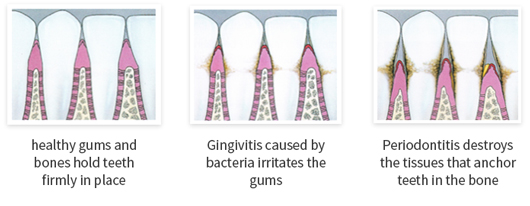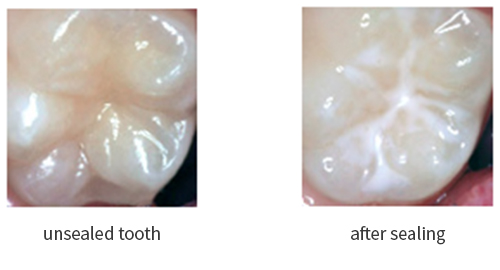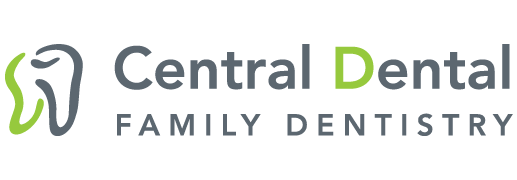

Preventative Dental Treatments in NE Minneapolis
Preventative Dental Cleaning
Good daily oral hygiene is the best way to reduce or entirely prevent the need for more extensive dental treatment. Everyone should brush and floss after every meal, or at least twice a day. Cleaning your teeth before bedtime is especially important.
Daily cleaning with brush and floss, however, is not always enough to keep your teeth completely clean and free from plaque-causing bacteria. Over time, these bacteria can accumulate on the teeth and gums and form plaque along the hard-to-clean areas of your mouth, like the back teeth and along the gum line. Bacteria in plaque release acids that can damage tooth enamel and lead to cavities.
Over time, plaque mineralizes to create a hard substance called tartar (dental calculus). Once it forms on your teeth, cleaning effectively is made much more difficult. Tartar along the gum line can allow bacteria to create inflammation, leading to progressive gum disease which can ultimately cause you to lose teeth and may even degrade the bone in which your teeth are secured.
Due to its hardness and tendency to occur in inaccessible areas, removing tartar requires professional preventative cleaning, which we can provide along with your routine checkups.
Recent studies have shown that these preventative cleanings are particularly important for people with certain medical conditions or lifestyles. These include diabetes, heart disease, pregnancy, and smoking among others. Patients in this category should pay extra attention to their oral health, as the quality of their tooth cleanings and dental care can have an added impact on mitigating the damages caused by other conditions.
Good oral hygiene protects far more than your teeth and gums. Let us help you maintain your overall health through excellent dental care!
Our services include:
- professional cleaning
- deep cleaning (root planing and scaling)
- comprehensive examination
- sealants
- films (Xrays)
- fluoride
- athletic guards
Scaling and Root Planing
Scaling and root planing are treatments for periodontal disease, infections of the gum and bone that hold teeth in place. Untreated periodontal disease can lead to tooth loss, and symptoms may not be obvious until your gums or bone are seriously damaged. The good news is that periodontal diseases often can be treated in the early stages.
Scaling and root planing are non-surgical steps that remove plaque and tartar below the gum line, and then smooth your teeth to reduce future accumulation on the root surfaces.
Treatment requires one or more visits, but often patients do not require any further treatment, only preventative care. Preventing and treating the disease in the early stages are the best ways to keep your smile healthy.
Gingivitis: The initial stage of periodontal disease. Affected gum areas become increasingly inflamed, appear swollen, and may bleed easily. The condition is reversible at this stage with regular brushing, flossing and visits to the dentist. If not treated, gingivitis may lead to periodontitis.
Periodontitis: This condition can irreversibly damage the gums and bones that support the teeth, but treatment can help. How periodontitis is treated depends on how far the condition has progressed and, in the more advanced stage, may require complex treatment to prevent tooth loss.

Sealants
Tooth decay often occurs on the chewing surfaces of back teeth. Sealants can offer major protection against tooth decay and improve the likelihood that you will remain filling-free. They are especially important for children’s first emerging permanent molars, because children might not have the dexterity to brush their teeth effectively and are still developing good brushing habits. However, sealants can be beneficial at any age.
What is a sealant? A sealant is a material that is applied to the teeth where decay occurs most often—the chewing surfaces of the back teeth. These teeth have pits and grooves that are difficult to keep clean, because toothbrush bristles cannot reach into them. The sealant—a plastic resin—bonds into the pits and grooves and acts as a barrier, protecting enamel from plaque and acids.

How are sealants applied? It usually takes only a few minutes to seal each tooth. First, the teeth that will be sealed are cleaned. Second, the chewing surfaces are pre-treated with a conditioner to help the sealant stick to the tooth. Third, the sealant is ‘painted’ onto the tooth enamel, where it bonds directly to the tooth and hardens. Sometimes a special curing light is used to help the sealant harden.
How long do sealants last? Sealants may last several years before they need to be reapplied. As long as the sealant remains intact, the tooth surface will be protected from decay. During your regular dental visits, your dentist will check the condition of the sealants and reapply them when necessary.
Sports Mouth Guard
Mouth guards are usually made from molded plastic and are very effective in preventing injury to teeth and mouth resulting from blunt force trauma. The ADA estimates that mouth guards prevent approximately 200,000 injuries each year in high school and collegiate football alone.
Mouth guards should be used by anyone — children and adults — who play contact sports such as football, hockey, soccer, basketball, lacrosse, or rugby. However, even those participating in noncontact sports that can result in trauma to the face, such as horseback riding, skateboarding, or skiing, can use mouth guards to prevent or at least minimize injury.
In our office, we make custom mouth guards designed for maximum protection with only minimal effects on speaking and breathing.

